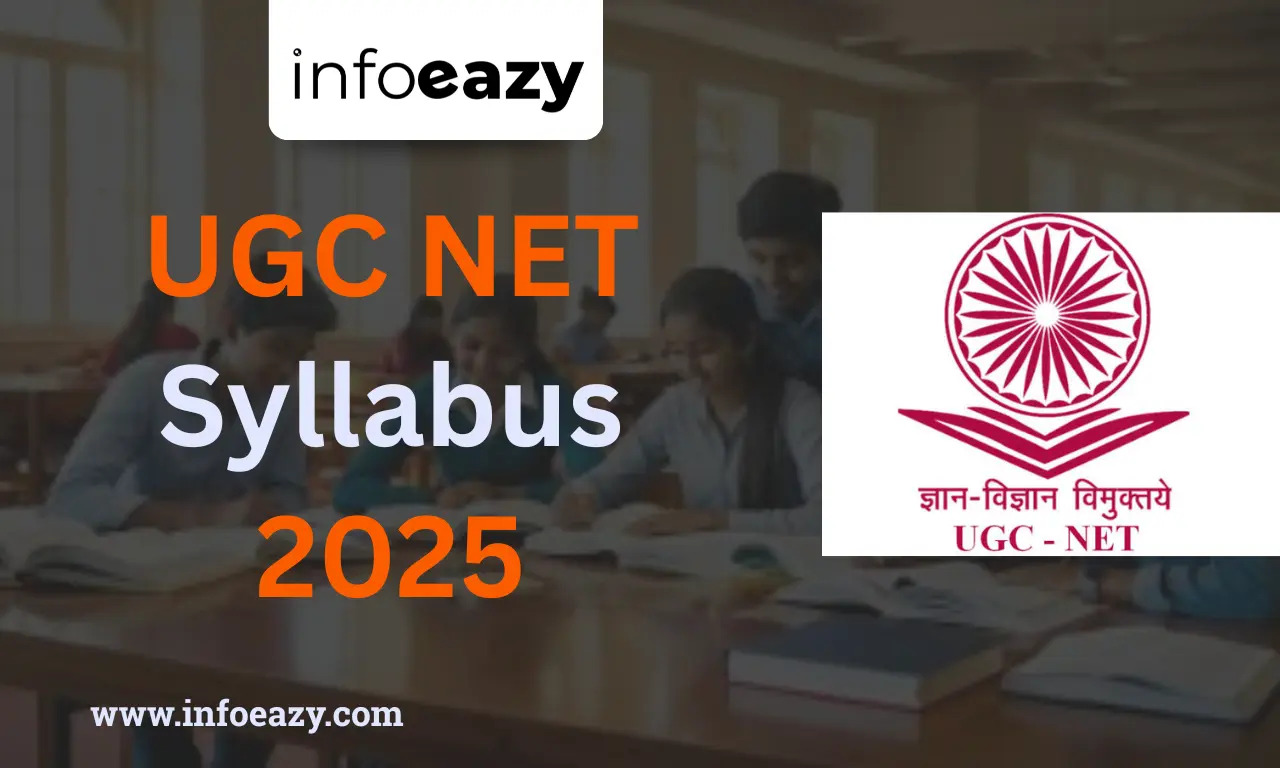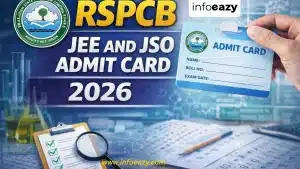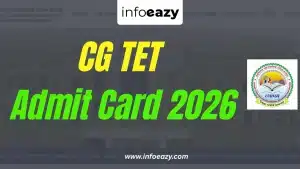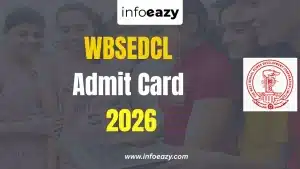The UGC NET Syllabus 2025 is divided into two papers: Paper 1 (General Aptitude) and Paper 2 (subject specific). Understanding the exam pattern and syllabus is essential for candidates in planning their studies and succeeding in the exam. The UGC NET Exam 2025 is conducted twice in a year in the months of December and June. The detailed syllabus and exam pattern for both Paper 1 and Paper 2 has been provided in the article below.
UGC NET Syllabus 2025
The UGC NET Syllabus 2025 helps candidates prepare for both Paper 1 and Paper 2 of the exam. Paper 1 focuses on general topics like teaching aptitude, reasoning, communication and research while Paper 2 covers detailed topics from the candidate’s chosen subject. The syllabus is designed to assess the overall knowledge and suitability of candidates for teaching and research roles in universities and colleges. Understanding the syllabus is the first step toward effective exam preparation.
UGC NET Syllabus 2025 Overview
The UGC NET Syllabus 2025 Overview table has been provided for the candidates who are preparing for the exam. The exam is conducted to help candidates in getting JRF, PHD Admission and Assistant Professor Post.
| UGC NET Syllabus 2025 Overview | |
| Name of the Exam | National Eligibility Test (UGC NET) |
| Conducting Body | National Testing Agency (NTA) |
| Exams Conducted in A Year | Twice a Year |
| UGC NET Mode of Examination | Online |
| UGC NET Type of Questions | Multiple Choice Questions (MCQs) |
| UGC NET Number of Papers | Paper I and Paper II |
| UGC NET Number of Questions | Paper I – 50 Questions, Paper II – 100 Questions |
| UGC NET Time Duration | 3 hours |
| UGC NET Negative Marking | No |
UGC NET Exam Pattern 2025
The UGC NET Exam Pattern 2025 consists of two papers conducted in a single session. Both papers include multiple choice questions (MCQs) and are conducted online. Paper 1 is common for all candidates, testing teaching and research aptitude and Paper 2 is subject-specific. The total duration of the exam is 3 hours and there is no negative marking.
| UGC NET Exam Pattern 2025 | ||||
| Paper | Number of Questions | Marks | Duration | Nature of Questions |
| Paper I | 50 | 100 | 3 hours (combined) | General Aptitude (Teaching/Research) |
| Paper II | 100 | 200 | Subject-specific Questions (based on chosen subject) | |
| Total | 150 | 300 | 3 hours | All Questions are Compulsory |
UGC NET Syllabus 2025 for Paper 1
UGC NET Syllabus 2025 for Paper 1 is a general paper that tests a candidate’s teaching and research skills. It is common for all subjects and includes topics like teaching methods, research basics, reasoning ability, reading comprehension, communication, and the use of technology in education. The detailed topic-wise syllabus is provided below.
Unit 1: Teaching Aptitude
- Nature and objectives of teaching
- Characteristics of learners
- Factors affecting teaching
- Teaching methods (teacher-centered vs. learner-centered)
- Teaching aids and audio-visual materials
- Evaluation systems: formative and summative evaluation, feedback, and assessment types
Unit 2: Research Aptitude
- Meaning and characteristics of research
- Types of research: fundamental, applied, and action research
- Steps of research process
- Methods of research (qualitative and quantitative)
- Thesis and article writing
- Concepts of hypothesis and sampling
- Research ethics and plagiarism
- Research tools and data collection techniques
Unit 3: Comprehension
- Focus is on evaluating the candidate’s ability to comprehend, analyze, and infer from written texts.
Unit 4: Communication
- Nature and types of communication (verbal, non-verbal, formal, informal)
- Characteristics of effective communication
- Barriers to communication
- Classroom communication
- Mass media and society
- Communication cycle and models
Unit 5: Mathematical Reasoning and Aptitude
- Number series, letter series, and codes
- Relationships and classification
- Arithmetic operations: percentage, profit & loss, interest
- Ratio and proportion
- Time, speed, and distance
- Averages and mixtures
- Venn diagrams and set theory basics
Unit 6: Logical Reasoning
- Understanding the structure of arguments
- Evaluating deductive and inductive reasoning
- Analogies
- Syllogism
- Venn diagrams
- Indian logic: pramanas, anumana, hetu, etc.
Unit 7: Data Interpretation
- Sources and types of data (primary, secondary)
- Data representation using tables, bar graphs, line graphs, and pie charts
- Basic calculations like mean, median, and mode
- Data analysis and interpretation skills
Unit 8: Information and Communication Technology (ICT)
- General abbreviations and terminology
- Basics of internet, email, and networking
- ICT tools: word processors, spreadsheets, presentation software
- Use of ICT in teaching, learning, and evaluation
- Digital initiatives in India (SWAYAM, NPTEL, MOOCs)
Unit 9: People, Development and Environment
- Human-environment interaction
- Environmental protection and conservation
- Pollution and its types
- Climate change and global warming
- Natural hazards and mitigation
- Environmental laws and policies in India
- Sustainable development and environmental impact assessment (EIA)
Unit 10: Higher Education System: Governance, Polity and Administration
- Evolution of higher education in India
- Commissions and committees on education (like Radhakrishnan, Kothari)
- Policies and governance structure of Indian education
- Roles of regulatory bodies (UGC, AICTE, NAAC)
- Budget allocation and quality maintenance
- Role of education in society and knowledge economy
Also Read: UGC NET Eligibility Criteria
UGC NET Syllabus 2025 for Paper 2
UGC NET Syllabus 2025 for Paper 2 is based on the subject chosen by the candidate and tests in depth knowledge of that specific subject. It includes core topics, theories, concepts, and applications relevant to the subject. The syllabus is designed to assess the candidate’s expertise and understanding required for teaching and research in their chosen field.
| UGC NET Syllabus 2025 for Paper 2 | |
| UGC NET Paper 2 Syllabus Topic List | Subject Code |
| Adult Education/ Continuing Education/ Andragogy/ Non-Formal Education. | 46 |
| Anthropology | 07 |
| Arab Culture and Islamic Studies | 49 |
| Arabic | 29 |
| Archaeology | 67 |
| Assamese | 36 |
| Bengali | 19 |
| Bodo | 94 |
| Buddhist, Jaina, Gandhian and Peace Studies | 60 |
| Chinese | 32 |
| Commerce | 08 |
| Comparative Literature | 72 |
| Comparative Study of Religions | 62 |
| Computer Science and Applications | 87 |
| Criminology | 68 |
| Defence and Strategic Studies | 11 |
| Dogri | 33 |
| Economics / Rural Economics /Co-operation / Demography/ Development Planning/ Development Studies / Econometrics/ Applied Economics /Development Economics /Business Economics |
01 |
| Education | 09 |
| Electronic Science | 88 |
| English | 30 |
| Environmental Sciences | 89 |
| Folk Literature | 71 |
| Forensic Science | 82 |
| French (French Version) | 39 |
| Geography | 80 |
| German | 44 |
| Gujarati | 37 |
| Hindi | 20 |
| Hindu Studies | 102 |
| History | 06 |
| Home Science | 12 |
| Human Rights and Duties | 92 |
| Indian Culture | 50 |
| Indian Knowledge System | 103 |
| Japanese | 45 |
| Kannada | 21 |
| Kashmiri | 84 |
| Konkani | 85 |
| Labour Welfare / Personnel Management / Industrial Relations/ Labour and Social Welfare / Human Resource Management |
55 |
| Law | 58 |
| Library and Information Science | 59 |
| Linguistics | 31 |
| Maithili | 18 |
| Malayalam | 22 |
| Management (including Business Admn. Mgt./Marketing / Marketing Mgt. /IndustrialRelations and Personnel Mgt. / Personnel Mgt. / Financial Mgt. /Cooperative Management) | 17 |
| Manipuri | 35 |
| Marathi | 38 |
| Mass Communication and Journalism | 63 |
| Museology & Conservation | 66 |
| Music | 16 |
| Nepali | 34 |
| Oriya | 23 |
| Pali | 83 |
| Performing Art – Dance/Drama/Theatre | 65 |
| Persian | 42 |
| Philosophy | 03 |
| Physical Education | 47 |
| Political Science | 02 |
| Politics including International Relations/International Studies including Defence / Strategic Studies, West Asian Studies, Southeast Asian Studies, African Studies, South Asian Studies, Soviet Studies, American Studies. | 90 |
| Population Studies | 15 |
| Prakrit | 91 |
| Psychology | 04 |
| Public Administration | 14 |
| Punjabi | 24 |
| Rajasthani | 43 |
| Russian | 41 |
| Sanskrit | 25 |
| Sanskrit traditional subjects (including Jyotisha/Sidhanta Jyotish/ Navya Vyakarna/ Vyakarna/ Mimansa/ Navya Nyaya/ Sankhya Yoga/ Tulanatmaka Darsan/ Shukla Yajurveda/ Madhav Vedant/ Dharmasasta/ Sahitya/ Puranotihasa /Agama). | 73 |
| Santali | 95 |
| Sindhi | 101 |
| Social Medicine & Community Health | 81 |
| Social Work | 10 |
| Sociology | 05 |
| Spanish | 40 |
| Tamil | 26 |
| Telugu | 27 |
| Tourism Administration and Management | 93 |
| Tribal and Regional Language/Literature | 70 |
| Urdu | 28 |
| Visual Art (including Drawing & Painting/Sculpture Graphics/Applied Art/History of Art) | 79 |
| Women Studies | 74 |
| Yoga | 100 |
| Disaster Management | 104 |
| Ayurveda Biology | 105 |
| Other Related Posts of UGC NET 2025 | |
| UGC NET Notification | UGC NET Eligibility Criteria |
| UGC NET Syllabus | UGC NET Salary |
| UGC NET Admit Card | |
UGC NET Syllabus 2025 FAQs
Q1. How can I download the UGC NET Syllabus 2025 PDF?+
Q2. Is Paper 1 the same for everyone?+
Q3. Is there any change in the UGC NET 2025 syllabus?+
Q4. Is the syllabus the same for all subjects in Paper 2?+
Q5. How many subjects are available for Paper 2 in UGC NET 2025?+




